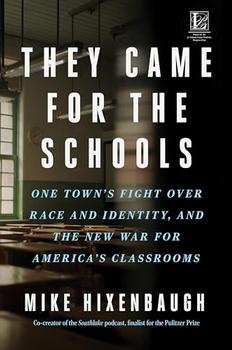Book Club Discussion Questions
Want to participate in our book club? Join BookBrowse and get free books to discuss!
Please be aware that this discussion guide will contain spoilers!
-
In the prologue, Hixenbaugh tells you something about his own life experiences. In the
acknowledgments at the end of the book, he also includes a personal detail. Did this
information about the author add to your experience of the book? How?
-
In the book's first chapter, "Perfect City, U.S.A.," Hixenbaugh sets up the idea of
Southlake as a place that offers parents everything they would want for their children.
But he also suggests that the city's history casts a shadow. What is that history?
-
Teacher Christina Caitlin (who becomes Christina McGuirk after her marriage) is
introduced early in the book. What about her Southlake teaching job led her to say that,
at first, she "felt like I was in a dream"? What was her first inkling that this would not
be true for her?
-
Southlake's Mayor Laura Hill is also portrayed in the book. How does her trajectory
compare to Christina McGuirk's? In what ways did the two women react differently to
the political pressure in Southlake?\
-
They Came for the Schools traces a recent and ongoing culture wars tsunami. After
reading the book, can you re-create a "timeline" set against the events in Southlake,
including the 2016 election of Donald Trump, the ensuing wave of racist and
xenophobic harassment in schools, the murder of George Floyd, and the rise of Black
Lives Matter?
-
In the chapter titled "Existential Threat," Mike Hixenbaugh identifies conservative
activist and journalist Chris Rufo as the person who, on Tucker Carlson's program in
September 2020, made the first and most consequential reference to critical race
theory, or CRT, on Fox News, saying that it was "now being weaponized against the
American people." Have you experienced Southlake-like acrimony over diversity and
inclusion efforts since, in your own school district?
-
Hixenbaugh writes, "There's a long history in America of parents suing schools to
control what their children learn." Can you recall some of those movements, from the
1920s to the 1980s and '90s, recalled for readers in the chapter "Existential
Threat"?
-
In the aftermath of the blowout school board election in Southlake in 2021, the idea
of a "Southlake playbook" took hold among conservative activists. Why do you think
they now seized upon the idea that, as Steve Bannon put it, "The path to save the
nation is very simple—it's going to go through the school boards"?
-
In "The Parents Are Our Clients," we see the immediate impact of the Southlake election on teachers and librarians. Why was Southlake teacher Rickie Farah reprimanded by the new school board?
-
Chris Rufo reappears in chapter 11. Here we see him realizing that "the reservoir of
sentiment on the sexuality issue is deeper and more explosive than the sentiment on
the race issues." How does Mike Hixenbaugh portray some of the results—on teachers, students, and parents—of the right's seizing on LGBTQ identities as an even bigger danger to schoolchildren than CRT? Which of these stories did you find most memorable?
-
What is the Seven Mountains Mandate? How is this ideology connected to Donald
Trump's rise to power and why is it a driving force behind the school privatization
movement?
-
We see teachers Christina McGuirk and Em Ramser, student Raven Rolle, and her
mother Amy Rolle making life decisions at the very end of the book. What are these
decisions, and how do they make you feel about the fallout of the right's attacks on
diversity and inclusion in public schools in Southlake and nationally?
Unless otherwise stated, this discussion guide is reprinted with the permission of Mariner Books. Any page references refer to a USA edition of the book, usually the trade paperback version, and may vary in other editions.
